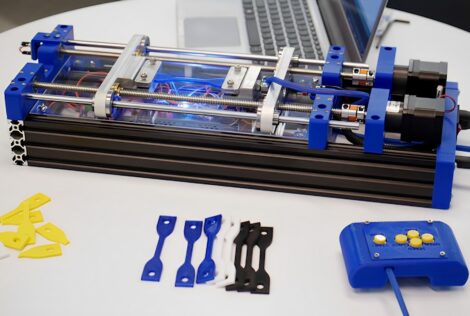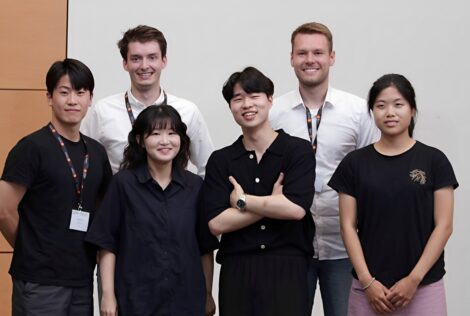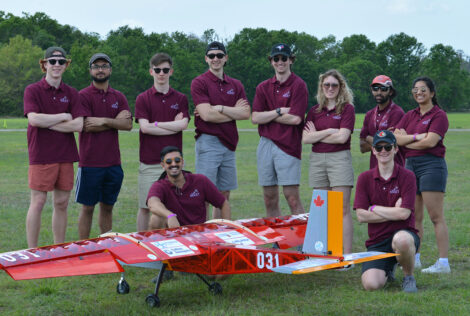
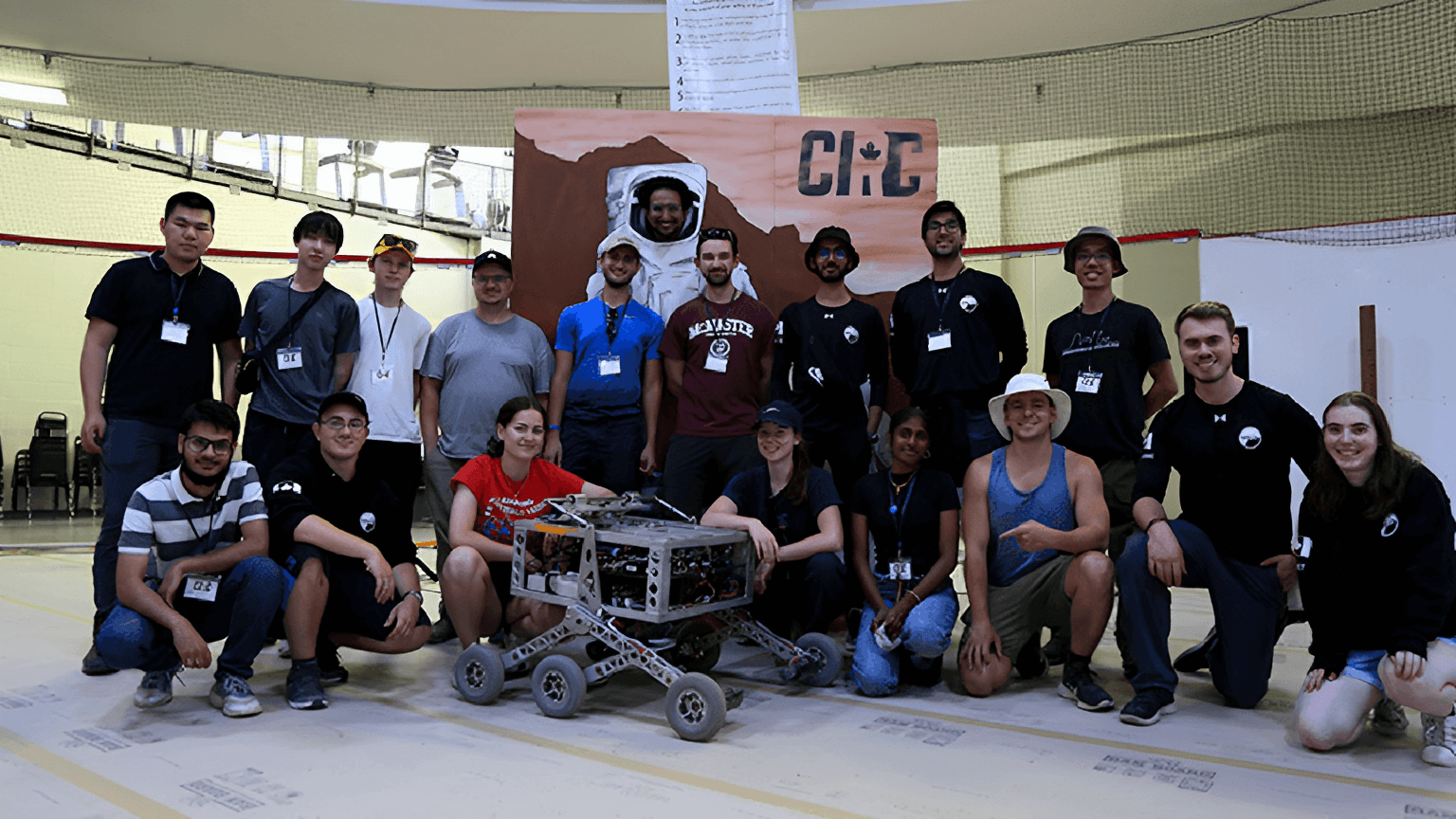
The McMaster Mars Rover Team (MMRT) of 80 students won first place in Canada and fourth overall at the sixth annual Canadian International Rover Challenge (CIRC) in Drumheller, Alberta. From August 11 to 14, CIRC hosted teams from across the globe including participants from Canada, the United States and Poland.
The team’s V1.5 Rover named Faraday took on a series of challenges in conditions that simulated a Mars-like environment, testing the limits of robotic technology and engineering innovation. Faraday was designed to navigate five distinct challenges, each focusing on a different aspect of the Rover’s capabilities: vision systems, robotic arm precision, autonomous navigation and soil analysis.
Dedication and innovation helped the McMaster team significantly improve upon their ninth-place finish in 2022.
I am honoured to serve a team of such dedicated and hard-working people. It is astonishing our Rover, Faraday, was merely an idea three years ago and that MMRT has become one of the top Rover teams at CIRC in such a short period. Watching our team members grow from students to aspiring engineers, having them apply fundamental knowledge from courses and adapting from failures to improve their practical understanding of engineering, is one of the most rewarding experiences I have ever had.

Throughout the event, Faraday demonstrated exceptional performance, smoothly navigating tough terrains in what’s known as the Canadian Badlands. Its accurate mechanical arm effectively managed tasks like pressing buttons and handling items. Despite encountering component failures and soil excavation challenges, the team embraced these experiences as learning opportunities they’ll bring towards future competitions.
I’m grateful to have gotten these opportunities on this incredible team. Watching the rover your team worked so hard on for so long overcome the challenges is amazing. The extensive hands-on problem-solving was a valuable learning experience, and the opportunities to develop leadership and teamwork skills in fast-paced environments as well.
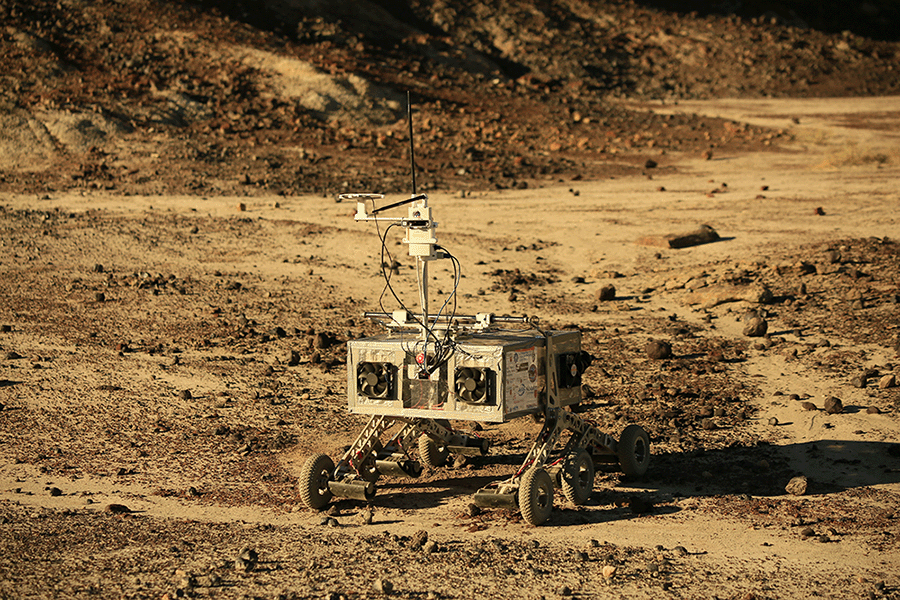
Innovation played a crucial role in the team’s success, driving significant improvements in various aspects of the rover’s design. The team made the mechanical arm stronger year over year by using materials like aluminum and steel, increasing its power and performance. The drivetrain underwent upgrades with special additions for increased durability. Additionally, the power supply and motor controls were improved for performance.
Watching the rover compete and seeing the whole team’s hard work come to fruition was such a rewarding experience! I am incredibly proud of the team’s success, and I can’t wait to apply the lessons learned at this competition to our future endeavours.
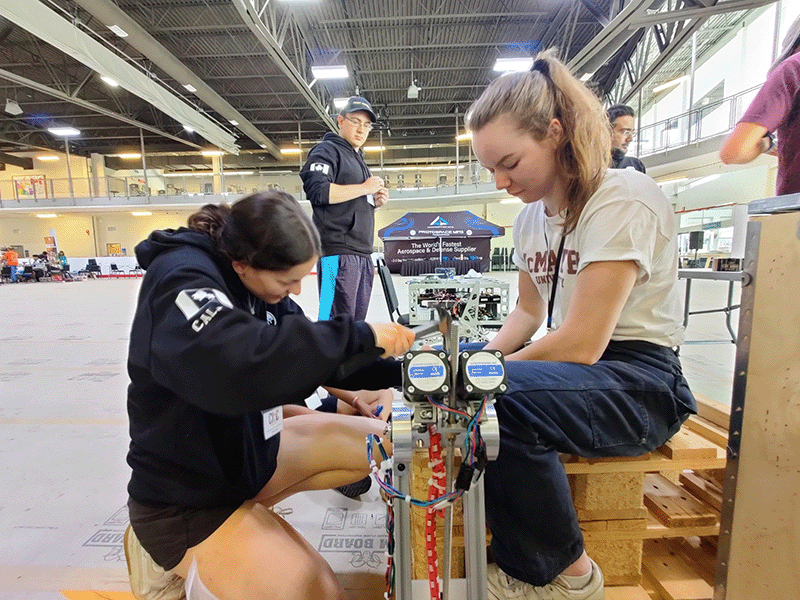
Being the Science Team Lead on MMRT has granted me the ability to learn a lot about what it really means to be a leader, and it let me be able to actively pursue my interests in not only space and engineering, but in science as a whole. Our team was able to produce a report that rivalled those in scientific journals, which was a huge learning experience for the whole team… Overall, I am extremely proud of the entire team for how well we did at CIRC, and these memories will be cherished for a long time.
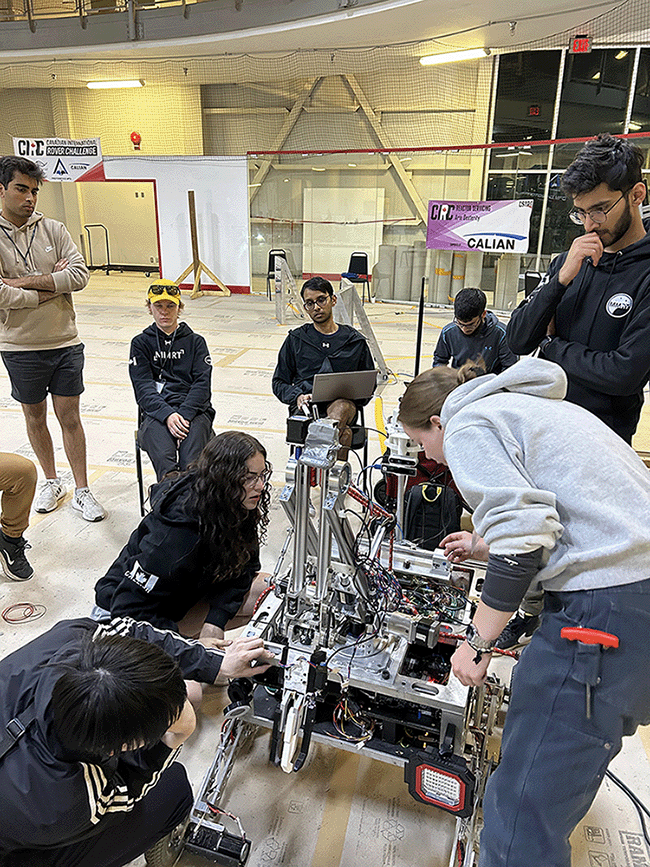
Some of the most memorable moments for me were when kids would come up to us in JHE field during testing and at competition in Drumheller fascinated by what we were doing. They were always so curious about how the rover works and how we made it. I hope that our accomplishments inspire them to be the next generation of engineers. Overall, being a part of MMRT and competing at CIRC has been an experience I’ll never forget.
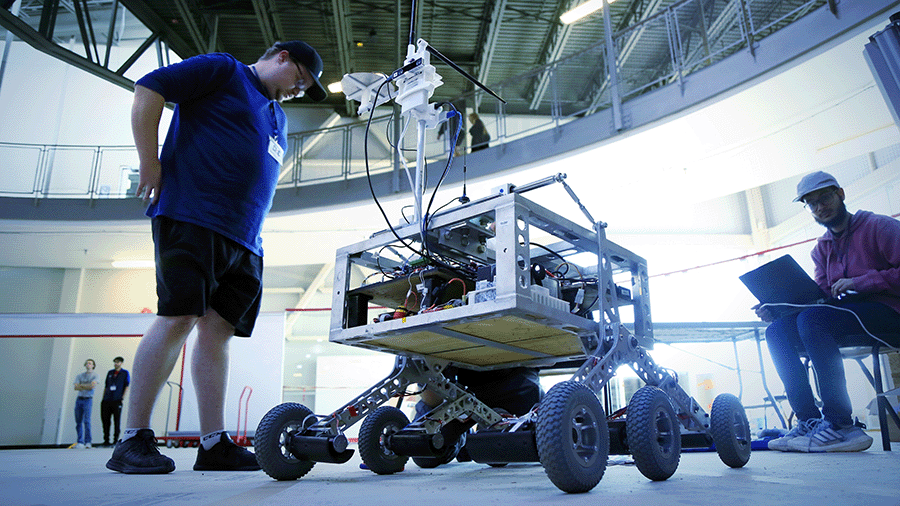
Team members turned to the engineering knowledge and skills from their academics to shape the rover’s design and function.
The hands-on experience I gained through McMaster Mars Rover Team when preparing for competition is also irreplaceable… I feel lucky to be able to learn from the incredible people on the team and grateful for the opportunities that McMaster Mars Rover Team provides.
The CAD done on the drivetrain design I was taught the basics of in classes, and the hands-on machining skills with the milling machine and drill press I learned in mechanical engineering lab courses. Statics and mechanics helped me think critically about the loading encountered by the drivetrain and how to design around it as well.
Energized by their big win, the McMaster Mars Rover Team has already begun developing their V2 Rover, Maxwell, gleaning lessons learned from Faraday.
Reach out to marsatmac@gmail.com for any inquires including sponsors interested in partnering with the team or visit marsatmac.ca more information.

